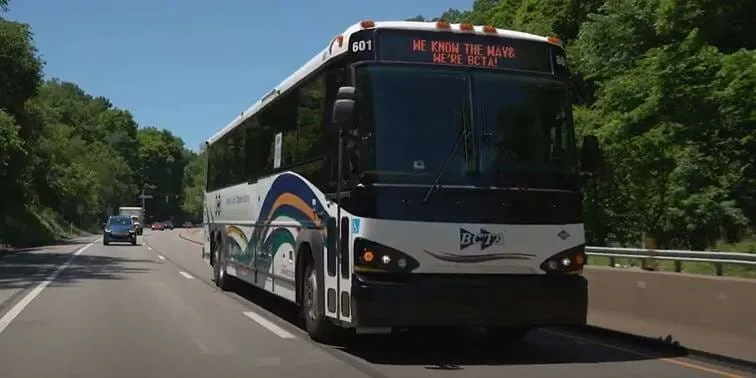
Should we get on board with open-loop?
We’re firmly in the world of the ‘when’ and ‘how’ transit systems will adopt open-loop digital payments, not ‘whether’ they will.
Our latest research found a significant majority of transit riders – 94% – now expect to tap-to-ride, and that 83% of transit providers that don’t yet have it plan to implement the technology. It’s clear that we’re moving past the tipping point. In 2024, transit agencies that have already adopted contactless payments will continue to refine their technology to ensure everything is as seamless and secure as possible. Those who are earlier in their journey will lean into future-proofing their tech stacks. Visa is supporting all of that innovation with Value-Added Services and the Visa Acceptance Platform, which is like the app store of payments. Modular and cloud-based, it enables our partners to consume the services they need, as they need them.
Will we see new developments in MaaS?
Leveraging the account-based ticketing (ABT) architecture that undepins open-loop, we’re also closer to unlocking the full power of Mobility as a Service (MaaS). MaaS is about connecting people to wider options regardless of age, ability, or socioeconomic status and fostering collaboration among transportation providers. Once MaaS reaches it full potential, riders will be able to leverage their favourite app to plan multimodal travel in new ways: want to take the greenest route? Quickest route? Punch in your needs, pay and plan in one place and off you go.
Open-loop payments also help drive financial inclusion by helping people who need it most save on transit fees. Switching from a closed-loop transit card to an open-loop prepaid card means that money isn’t ‘locked up’ in a card.
What's coming beyond 2024?
Looking further ahead, we’re envisioning a future where technology might one day enable widespread ‘hands-free’ payments in transit. Imagine a day where anywhere in the world you could jump on public transit via a virtual ticket. The bus, train or tram just ‘knows’ you’re there and knows when your ride is done. And in some ways, this isn’t that far off because these concepts share the same account-based ticketing architecture, which is groundwork we’ve already laid with contactless payments. It’s exciting stuff. These intuitive experiences will leverage a wide array technology from beacons (Bluetooth/UWB), ultra-sonic comms, geo-fencing and various biometric tech.









